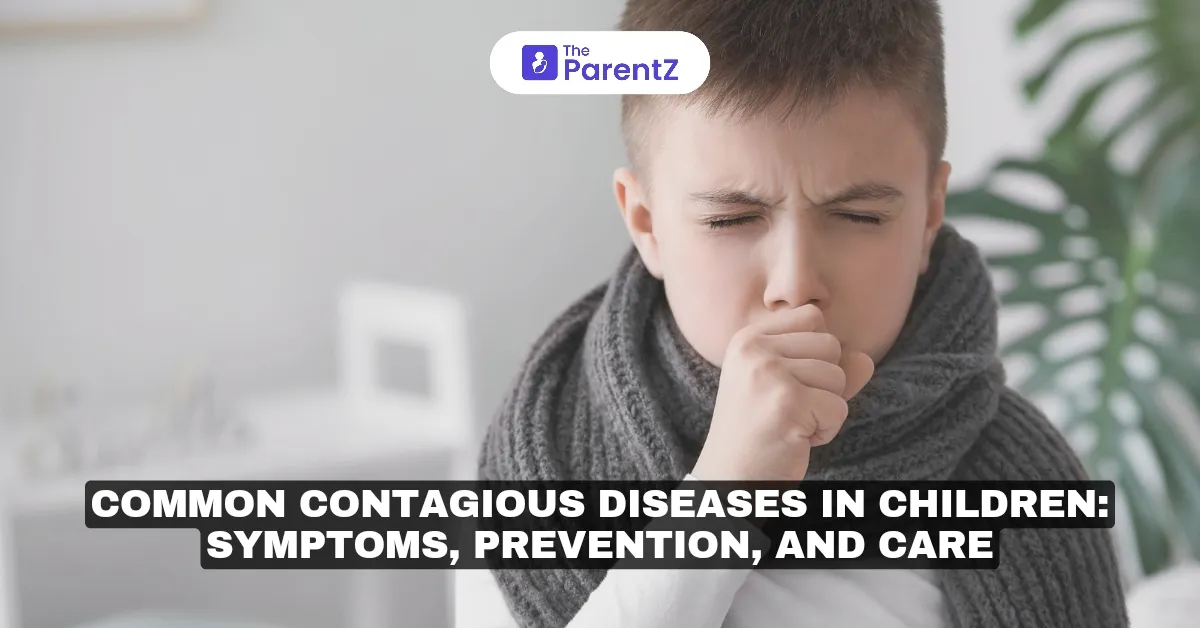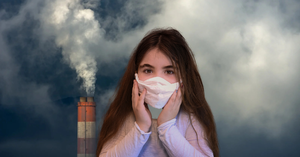Children are highly susceptible to contagious diseases, especially in environments like schools and playgrounds where germs spread easily. Understanding the most common infectious diseases, their symptoms, and how they spread can help parents and caregivers prevent and manage outbreaks effectively. This article covers the key information on contagious diseases in children, from symptoms to prevention and care.
Common Contagious Diseases in Children
1. Common Cold
• Cause: Viruses (mainly rhinoviruses).
• Symptoms: Runny nose, sore throat, cough, mild fever, and fatigue.
• Prevention: Regular handwashing, avoiding close contact with infected individuals, and proper hygiene.
• Care: Rest, hydration, and over-the-counter medications for symptom relief.
2. Influenza (Flu)
• Cause: Influenza virus.
• Symptoms: High fever, chills, sore throat, cough, body aches, and fatigue.
• Prevention: Annual flu vaccination, handwashing, and avoiding crowded places during flu season.
• Care: Rest, fluids, antiviral medications (if prescribed early), and symptom management.
3. Chickenpox (Varicella)
• Cause: Varicella-zoster virus.
• Symptoms: Itchy rash with red spots and blisters, fever, and fatigue.
• Prevention: Varicella vaccine, avoiding contact with infected individuals.
• Care: Oatmeal baths, calamine lotion, and antihistamines for itching; maintain good hygiene to prevent secondary infections.
4. Hand, Foot, and Mouth Disease (HFMD)
• Cause: Coxsackievirus or enterovirus.
• Symptoms: Fever, mouth sores, and rash on hands, feet, and sometimes buttocks.
• Prevention: Handwashing, disinfecting surfaces, and avoiding close contact with infected individuals.
• Care: Fluids, pain relief for mouth sores, and rest.
5. Measles
• Cause: Measles virus.
• Symptoms: High fever, cough, runny nose, red eyes, and a rash that starts on the face and spreads.
• Prevention: Measles, mumps, and rubella (MMR) vaccine.
• Care: Supportive care, hydration, and isolation to prevent spreading.
6. Strep Throat
• Cause: Group A Streptococcus bacteria.
• Symptoms: Sore throat, difficulty swallowing, red and swollen tonsils, fever, and sometimes a rash.
• Prevention: Good hand hygiene, not sharing utensils, and avoiding close contact with infected individuals.
• Care: Antibiotics prescribed by a doctor, rest, hydration, and pain relief.
7. Respiratory Syncytial Virus (RSV)
• Cause: RSV virus.
• Symptoms: Runny nose, cough, fever, and difficulty breathing, especially in infants.
• Prevention: Frequent handwashing, avoiding sick individuals, and disinfecting surfaces.
• Care: Hydration, rest, and medical care if symptoms worsen or breathing difficulty occurs.
8. Whooping Cough (Pertussis)
• Cause: Bordetella pertussis bacteria.
• Symptoms: Severe coughing fits, “whooping” sound during breathing, runny nose, and mild fever.
• Prevention: DTaP vaccine (Diphtheria, Tetanus, Pertussis).
• Care: Antibiotics prescribed by a doctor, isolation to prevent spread, and supportive care for coughing fits.
Preventive Measures to Reduce Contagion
1. Vaccination: Ensure children are up-to-date on recommended vaccinations to prevent illnesses like measles, chickenpox, and pertussis.
2. Hand Hygiene: Encourage frequent handwashing with soap and water, especially before meals and after using the restroom or playing outside.
3. Teach Respiratory Etiquette: Teach kids to cover their mouths when coughing or sneezing and to use tissues or their elbows instead of hands.
4. Limit Exposure: Keep children home when they’re sick, especially from school or daycare, to prevent spreading illness.
5. Maintain Cleanliness: Regularly disinfect commonly touched surfaces like toys, doorknobs, and tables to reduce the spread of germs.
Conclusion
Awareness of common contagious diseases in children and how to prevent them can greatly reduce illness and keep children healthy. Through vaccinations, good hygiene practices, and prompt medical care, parents can help their kids avoid or recover more quickly from infections. If symptoms persist or worsen, consult a healthcare professional for further guidance to ensure your child receives the best care possible.








Be the first one to comment on this story.